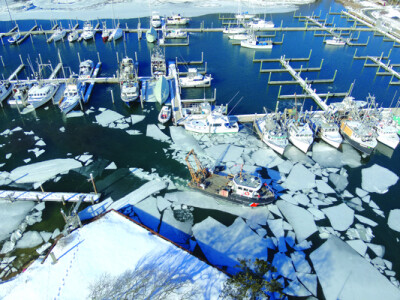Ocean acidification may well be helping invasive species of algae, jellyfish, crabs and shellfish to move to new areas of the planet with damaging consequences, according to the findings of a new report.
Slimy, jelly-like creatures are far more tolerant of rising carbon dioxide levels than those with hard structures like corals, since exposed shells and skeletons simply dissolve away as CO2 levels rise.
The study, conducted by marine scientists at Plymouth University, has found that a number of notorious ‘nuisance’ species – such as Japanese kelp (Undaria pinnatifida) and stinging jellyfish (Pelagia noctiluca) are resilient to rising CO2 levels. Published in Research and Reports in Biodiversity Studies, it notes that in the tropics, coral reefs face a host of interconnected problems (bleaching, corrosion, disease, spreading seaweed, invasive species) that are all caused by rising CO2 levels.
Read the full story at Alaska Native News >>
Read more about ocean acidification >>






